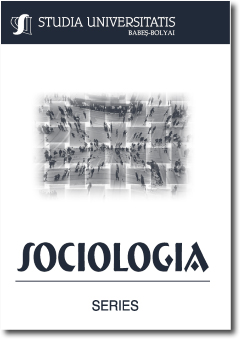NEOLIBERAL MANAGERIALISM, ANTI-COMMUNIST DOGMA AND THE CRITICAL EMPLOYEE IN CONTEMPORARY ROMANIA
NEOLIBERAL MANAGERIALISM, ANTI-COMMUNIST DOGMA AND THE CRITICAL EMPLOYEE IN CONTEMPORARY ROMANIA
Author(s): Anca SimioncaSubject(s): Social Sciences
Published by: Studia Universitatis Babes-Bolyai
Keywords: anti-communism; capitalist realism; ordinary critique; neoliberal subjectivity; middle class.
Summary/Abstract: This paper focuses on the tensions created and sustained around the definitions of the respectable employee in Romania two decades after the fall of the socialist regime. I argue that the hegemonic anti-communist discourse has crucial effects beyond shaping the dominant intellectual field, through creating the representational tools by which any claim employees could make in relation to their involvement in the circuits of capitalist production is qualified as illegitimate. The pressure towards understanding oneself as an autonomous, flexible, creative and self-sufficient working subject that the increasingly pervasive neoliberal logic exerts is being multiplied by presenting the adherence to this subjectivity as the only way to prove that one is no longer under the legacy of the (indisputably bad) socialist past. I try to render visible the affinities between the voicing-outs and silences which constitute the anti-communist discourse and the building blocks of the neoliberal scripts for subjectivities on the one hand, and the impossibilities to formulate individual level indignations on the other. Following Boltanski (2011), I differentiate between reformist critique (which denounces situations as unjust, but within the overarching framework that holds capitalism itself as a just system) and radical critique (which would put in doubt the very fairness of capitalism and would make claims of alternative modes of co-production). I base my empirical claims about the parameters of ordinary critique on the case of middle managers in Cluj, whose working life histories I analyzed. I argue that while reformist critique is abundant in their narratives, the possibility of it coagulating into radical critique is seriously hampered. I focus here on the role played by the hegemonic anti-communist discourse and some of the instances in which it is substantiated in fueling this impossibility. I further argue that sociologies of domination such as orthodox Marxism contribute to making the coagulation of radical critique more difficult because this theoretical position does not allow us to recognize analytically any exterior to capitalism as we speak and live. I use the case at hand to make a more general plea for critical sociology to place the political implications of the narratives it produces at the heart of its theorizing.
Journal: Studia Universitatis Babes-Bolyai - Sociologia
- Issue Year: 57/2012
- Issue No: 1
- Page Range: 123-149
- Page Count: 27
- Language: English

